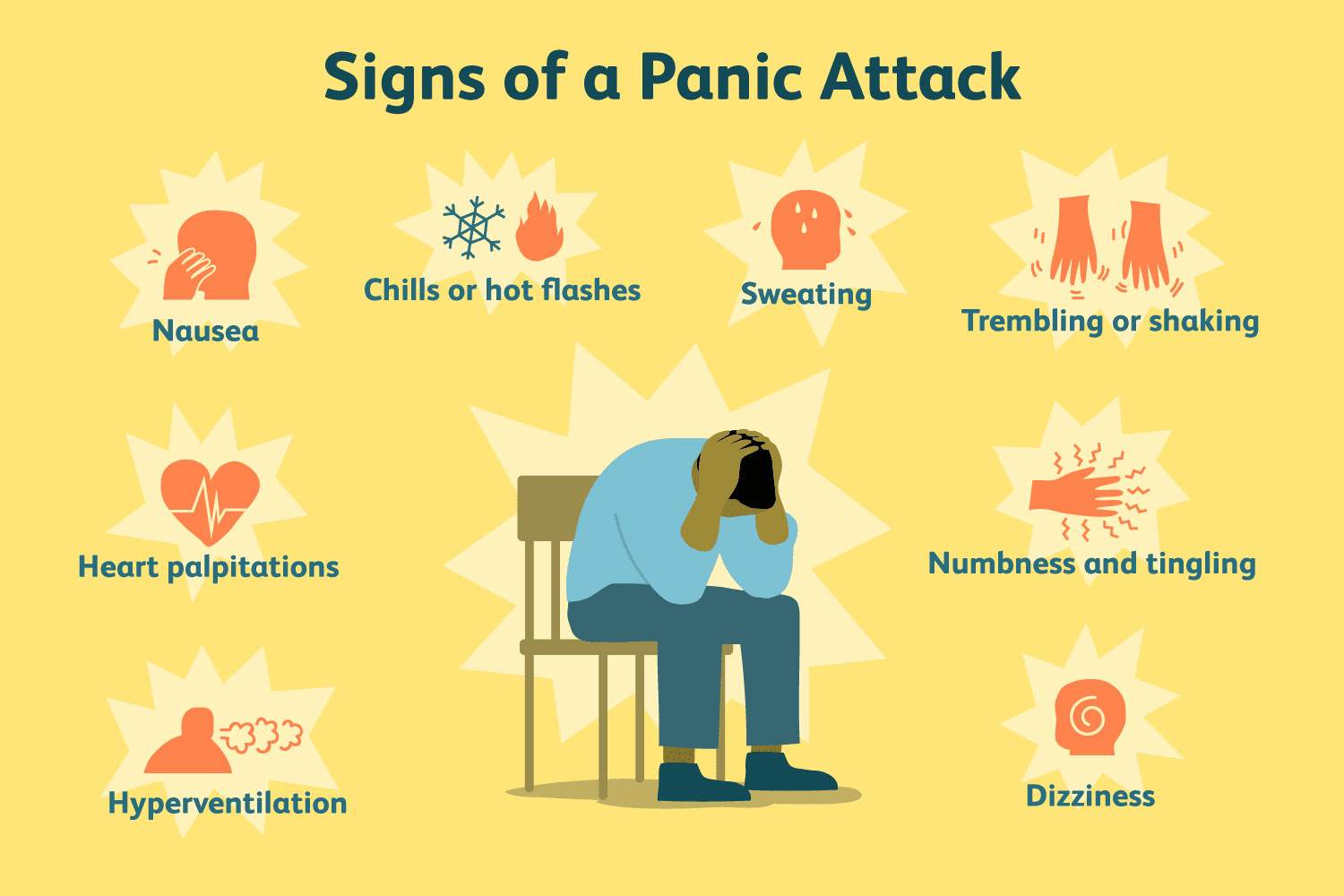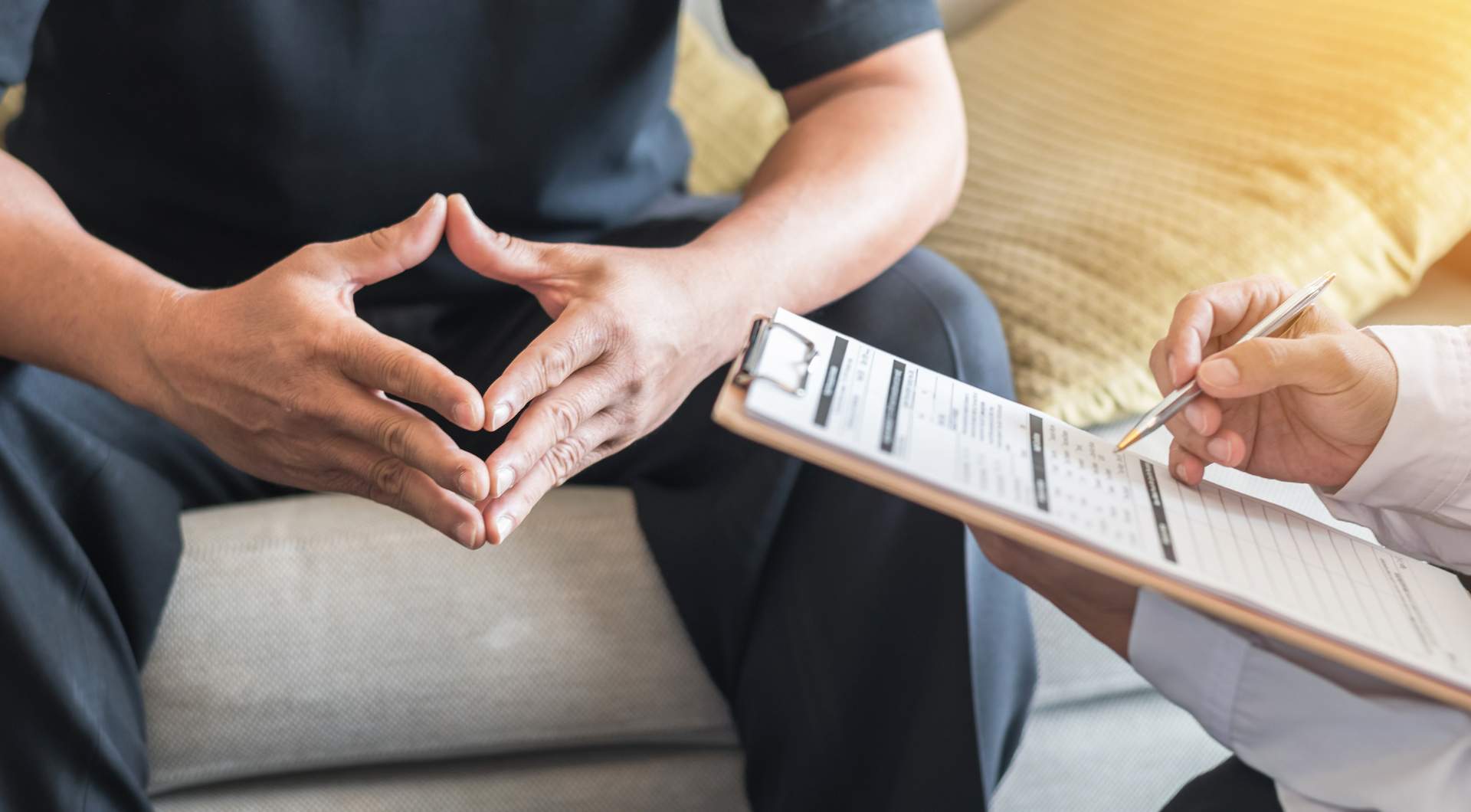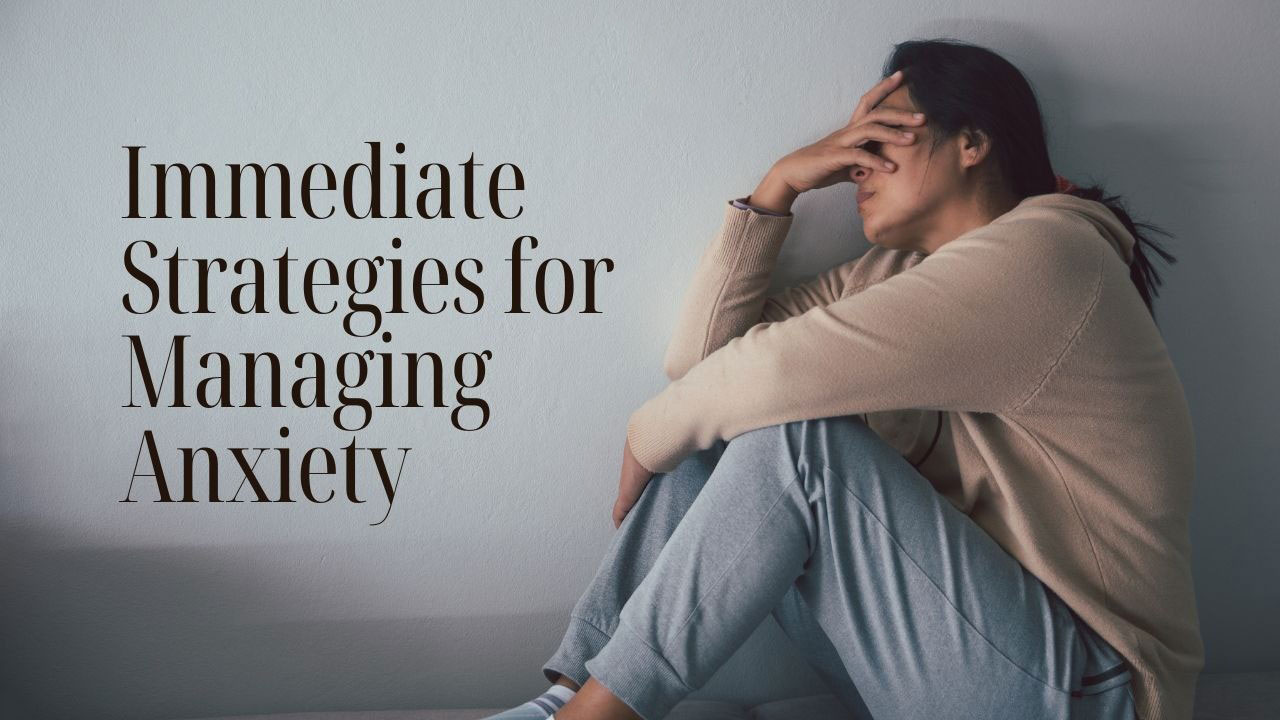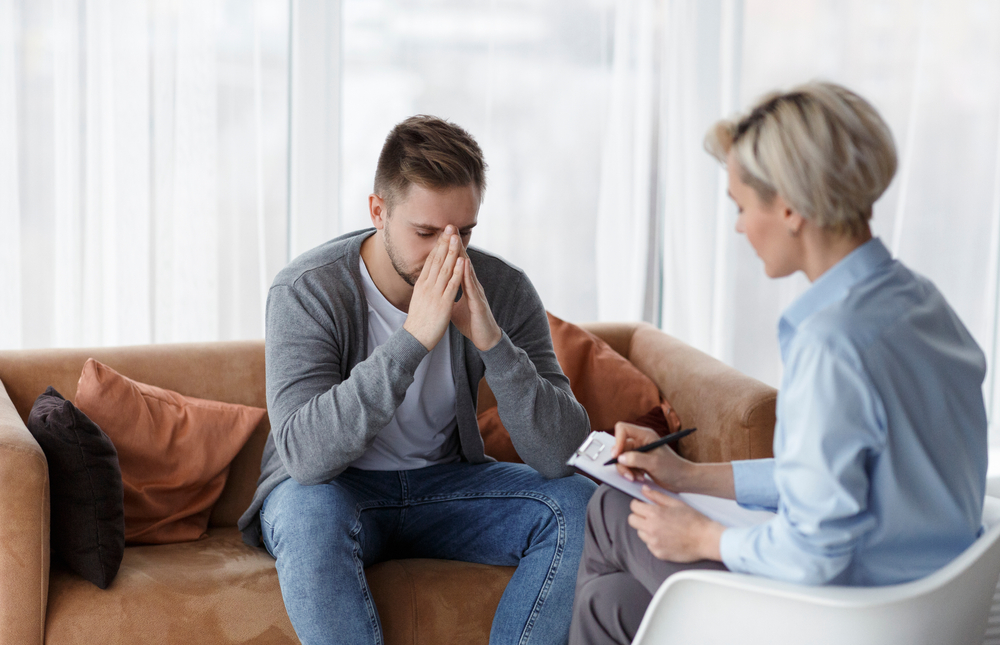Navigating the tumultuous waters of anxiety attacks can often feel like an insurmountable challenge, leaving individuals both overwhelmed and bewildered. However, gaining insight into coping mechanisms can immensely contribute to preserving one’s mental health and resilience. This article aims to illuminate practical strategies to employ during anxiety attacks, whether it's the stealthy grip of a silent anxiety attack or the sudden onset of panic while behind the wheel. Beyond immediate coping techniques, we'll also examine the lingering effects, often referred to as anxiety attack hangovers, and strategize incorporating these insights into a comprehensive and effective anxiety management plan.
Recognize The Signs Of An Anxiety Attack

Awareness of the nuanced presentations of anxiety attacks is crucial for effective self-care and intervention. While overt symptoms like a racing heart, clammy palms, and labored breathing are often immediate indicators, silent anxiety attacks can be equally debilitating, marked by an overwhelming internal struggle that goes unseen. These invisible battles might include intense feelings of dread, mental unrest, or a profound sense of detachment from reality. Recognizing this spectrum of symptoms empowers individuals to acknowledge their experiences without feeling the need to justify anything beyond their internal awareness. It also underlines the importance of mental health literacy, encouraging those experiencing such symptoms to seek professional guidance. Through therapeutic techniques, personal coping strategies, and possibly medication, individuals can learn to navigate their anxiety, transforming adversity into an opportunity for personal growth and resilience..
Creating An Anxiety Treatment Plan

Creating an effective anxiety treatment plan involves understanding the unique aspects of each individual's experience with anxiety. To craft such a plan, it's vital to incorporate a range of strategies that address both the physical and psychological components of anxiety. Techniques such as deep breathing exercises can help regulate the body's response to stress by promoting relaxation and reducing tension. Mindfulness practices enable individuals to stay grounded in the present moment, diminishing the power of anxious thoughts. Cognitive-behavioral therapy (CBT) is a highly effective method for identifying and reshaping negative thought patterns that fuel anxiety. For some, medication may offer additional support to balance neurotransmitters in the brain. Partnering with a mental health professional is essential to ensure that each component of the plan is tailored to the individual's needs, triggers, and lifestyle. Together, you can set realistic and achievable treatment goals, regularly assessing progress and making adjustments to enhance the effectiveness of the plan. Remember, the goal is to equip individuals with the tools and resilience needed to navigate anxiety more effectively, fostering a more balanced and fulfilling life..
Handling Anxiety Attack While Driving

During an anxiety attack on the road, recognizing the early signs such as rapid heartbeat, shortness of breath, or dizziness can make a significant difference. It's important to remember that your safety is the top priority. Once you've pulled over to a secure location, take a moment to assess your surroundings, assuring yourself that you are out of harm's way. Employ deep breathing techniques by inhaling slowly through your nose and exhaling through your mouth, helping to stabilize your heart rate and reduce panic. Grounding exercises, like focusing on the texture of the steering wheel or the sounds outside your car, can help reorient your mind to the present. Turning on soft, calming music can also create a soothing environment, providing a gentle distraction and easing your racing thoughts. If possible, keep a bottle of cold water in the car; sipping on it can invoke a sense of normalcy and provide a physical focal point. Giving yourself grace and time to recover before resuming your journey is essential in managing anxiety while driving..
Immediate Coping Strategies

When an anxiety attack occurs, having immediate coping strategies can be beneficial. Techniques like diaphragmatic breathing and progressive muscle relaxation can help reduce the intensity. Counting backward from 100 or focusing on sensory details around you can also distract your mind, easing the panic. Additionally, grounding techniques, such as the 5-4-3-2-1 exercise, where you identify five things you can see, four things you can touch, three things you can hear, two things you can smell, and one thing you can taste, can effectively anchor you to the present moment. Visualization, where you picture a tranquil scene or a safe space, can also provide comfort. Engaging in light physical activity, like walking or stretching, can release tension and calm your nerves. And don't underestimate the power of a simple mantra or affirmation; repeating a reassuring phrase can help shift your focus from anxiety to serenity..
Addressing Post Anxiety Attack Effects

Additionally, nurturing your mental well-being through mindfulness exercises can be beneficial. Consider spending a few quiet moments engaging in deep-breathing techniques or meditation to help center your thoughts and regain a sense of balance. Journaling your feelings can also be therapeutic, allowing you to process emotions and identify potential triggers. Staying hydrated and nourishing your body with healthy foods can replenish your energy levels. Remember, self-compassion during this time is crucial; it's okay to prioritize your own well-being and seek support from loved ones or mental health professionals if needed. Embracing these practices can foster resilience and help in the gradual restoration of your emotional equilibrium..
Overcoming Anxiety Attack Hangovers

Anxiety attack hangovers can feel like an emotional rollercoaster finally coming to a stop, leaving you feeling disoriented and depleted. It's crucial to give yourself the grace to recover by prioritizing rest, allowing your mind and body the chance to recalibrate. Hydration and balanced nutrition act as your allies, replenishing the energy sapped away by the intensity of the experience. Engaging in journaling can serve as a therapeutic outlet, offering clarity and perspective on the episode. By documenting your thoughts and emotions, you may begin to unearth patterns and pinpoint triggers, equipping yourself with valuable strategies to navigate future challenges. Throughout this recovery process, cultivating self-compassion and practicing mindfulness can help soothe any lingering emotional turmoil, fostering a sense of peace and resilience. Embrace this time as an opportunity for growth and understanding, allowing yourself to heal both mentally and physically..
Incorporating Long-term Techniques

Incorporating long-term techniques can significantly enhance overall well-being by addressing the root causes of anxiety. Regular physical exercise, for instance, releases endorphins which improve mood and reduce stress, acting as a natural antidote to anxiety. Meditation, on the other hand, cultivates mindfulness, enabling individuals to anchor themselves in the present moment and diminish racing thoughts that often accompany anxiety attacks. Engaging in creative outlets such as art or music fosters self-expression and can serve as a powerful release for pent-up emotions, providing a therapeutic escape that helps to process and manage anxiety. By integrating these techniques into daily routines, individuals not only build mental resilience but also create a supportive foundation that aligns with long-term treatment goals. Over time, these practices can lead to a profound transformation in how anxiety is perceived and managed, promoting a healthier, more balanced approach to mental health..
Seeking Professional Help

If you experience frequent or severe anxiety attacks, seeking professional help is vital. A mental health professional can conduct a comprehensive assessment and recommend therapies tailored to your situation. This support is crucial for those who experience silent anxiety attacks, which are often harder to identify and communicate to others. Silent anxiety attacks can manifest in subtle ways, such as persistent feelings of unease or physical symptoms without an apparent cause. This makes it challenging for individuals to articulate their experiences to friends or family. Having a professional guide can provide clarity, support, and effective strategies to manage and alleviate the symptoms. With the appropriate care, individuals can learn to recognize the triggers of their anxiety and develop coping mechanisms to regain control over their mental well-being, fostering a healthier, more balanced life..
Developing A Support Network

Having a strong support network can be invaluable during an anxiety attack recovery. Friends and family can offer reassurance and companionship, which can alleviate feelings of isolation. Support groups, either in-person or online, can provide shared experiences and strategies that further aid in dealing with anxiety. Additionally, seeking professional guidance from therapists or counselors can complement the support of loved ones by offering expert insights and coping techniques tailored to individual needs. Regular communication with supportive figures helps build a sense of community and understanding, empowering those affected by anxiety to confront their challenges more effectively. Engaging in activities such as yoga or mindfulness meditation with others can foster a sense of belonging, making the journey toward recovery less daunting. By nurturing these connections and reaching out for help, individuals can cultivate a robust support system that not only aids in overcoming anxiety but also enhances overall well-being and resilience..
Understanding and managing anxiety attacks involves recognizing symptoms, implementing immediate coping strategies, and focusing on long-term treatment goals for anxiety. Each individual's anxiety treatment plan will be unique, emphasizing the necessity of professional guidance and a supportive network to navigate through challenging episodes safely. By applying these strategies, you can diminish the frequency and impact of anxiety attacks, paving the way for enhanced emotional well-being.


